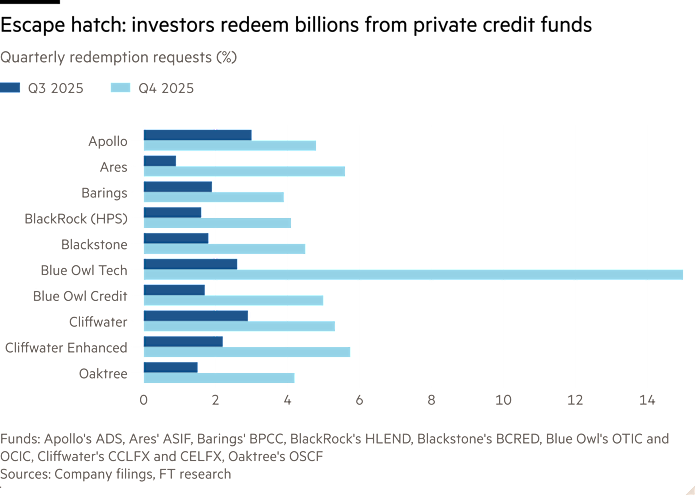No one was surprised last November when the Pentagon failed its sixth audit, serving up a sorry record of zero and six. The accomplishment received little mainstream media coverage. Scott Ritter excoriated his former employer (and mine) over the fraud, pointing out that the money wasted and the scope of the United States military activity is so massive, it is nearly incomprehensible to most Americans.
Ritter points out that audits are done by accountants, and while failing these audits is undesirable, passing them also means very little. His assessment? “When you allocate money to a system that has been allowed to become conditioned to operate without accountability, don’t be surprised when the shiny mansion on the hill you thought you were buying turns out to be little more than a house of cards.”
Can we learn anything from this exercise? Can we use audits to improve the US Department of Defense spending and lobbying system? What else might we learn from these long-resisted annual exercises in futility?
The Pentagon “audit” is actually a collection of twenty-nine subaudits focused on different parts of the US military; it is located in every state and in forty-five hundred sites around the world. Some of the 2023 subaudits have not even reported yet.
The Pentagon has lost and misplaced inventory, its books don’t balance, and it spends too much. The contracting system incentivizes and rationalizes overcharges, and it limits competition. The Pentagon funds its own hospitals, schools, and medical care, and we continually find many expenses at variance with the average citizen’s expectation of defense. For example, in 2015, the Pentagon spent $41.6 million on Viagra, with another $43 million on similar erectile dysfunction medications. Importantly (and what a relief to know), only 10 percent of these prescriptions were written for active-duty members—most went to military retirees. More recent audits reflect growing medical expenses in support of gender reassignment and psychological counseling.
Solutions—as put forth by government overseers—focus on improved data systems, better integration of accounting tools, and the use of artificial intelligence to be able to have total information awareness inside Pentagon resources and spending. None of these “solutions” have anything to do with the actual problems of accountability, legal price gouging, institutionalized political bribery, and a murky and random set of Pentagon missions.
These “solutions” also do not address the underlying and rapidly growing disconnect between the trillions of dollars of “investment” and the real defense returns expected by Americans.
Audits, fundamentally, do little more than rationalize a budget. Of course, Congress does enjoy complaining about executive agency waste and excess, as well as its incompetence—failed Pentagon audits support hundreds of heated debates over tea and crumpets throughout Washington, DC.
Instead of audits, perhaps we should seek to rationalize the bureaucracy itself.
The next few years offer Congress several excellent opportunities to really help the Pentagon and improve American defense. Because trillion-dollar revolving interest payments are at hand, a mechanism for reducing the Pentagon budget exists, a mechanism of urgent national necessity.
We might learn, from repeated failed Pentagon audits, that the Pentagon as it exists today will never honestly complete or pass an audit. A simple look at the audit overview itself explains why. Between thousands of installations, dozens and dozens of commands—including specialty commands and combatant commands—special war projects, and a host of other mission areas, we are dealing with an entire nation within a nation. The Pentagon is a military empire with its own set of rules, not just for accounting, but for survival and expansion—and none of those rules are connected or dependent upon the primary rules of the nation from which it was spawned. We have today an unaccountable empire, nested in Washington, that is dangerously unable to defend United States territory and is maligned with her interests.
What we might learn from repeated failed Pentagon audits is that the empire within an empire is responsive only to input control, not input inspection. To reduce fraud and waste as well as to be able to manage this massive entity, Congress will need to control the mission creep, reduce the number and duplicity of commands and agencies, and stop demanding and start refusing kickbacks from key military contractors and lobbyists. Congress itself must become more interested in defending the United States than they are in counterproductive occupations and proxy wars. Much as any supervisory organization would do, Congress must fund the Pentagon only as it must, as is reasonable, and as set forth in mission priorities, then let the Pentagon itself determine how to streamline, eliminate, and transform itself into a military that is affordable, one that provides actual US security.
We might learn, from repeated failed Pentagon audits, about missing secretaries of defense—they are tolerated by the system precisely because they actually don’t matter and have no impact.
We might learn, from repeated failed Pentagon audits, what we have learned from repeated and predictably failed military missions in the Middle East and elsewhere in the thirty years since the end of the Cold War—they are kabuki theater for an increasingly indebted and unfree nation that refuses to honestly assess its degraded and limited capabilities to actually defend the country.
Congress is filled with representatives who seek to increase the Pentagon budget so it can grow and do more. For every “hawk,” there is a “dove” who would like to reduce the size and scope of some aspect of Pentagon spending. These repeated failed, and perpetually failing, audits serve both groups, diverting their attention. This alone should help the nation realize that it is looking at the wrong problem and asking the wrong questions.
As the sun sets on the American era of military and financial empire, we will be forced to look at the right problems and to ask the right questions. Those of us who understand the hopelessness of an imperial military and can envision what a secure and prosperous peace could look like in North America and around the globe have a specific and important role to play in shaping this conversation. The sooner we begin this process, the better.
Full story here Are you the author? Previous post See more for Next postTags: Featured,newsletter


































